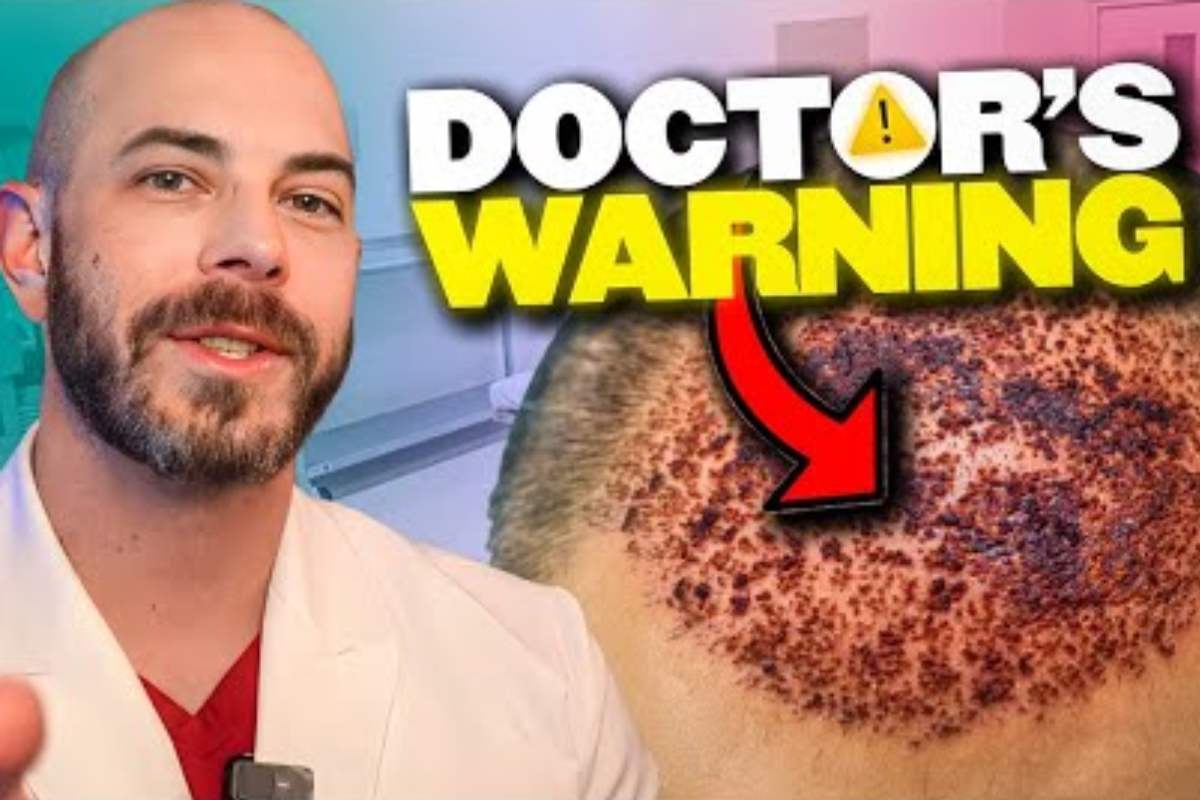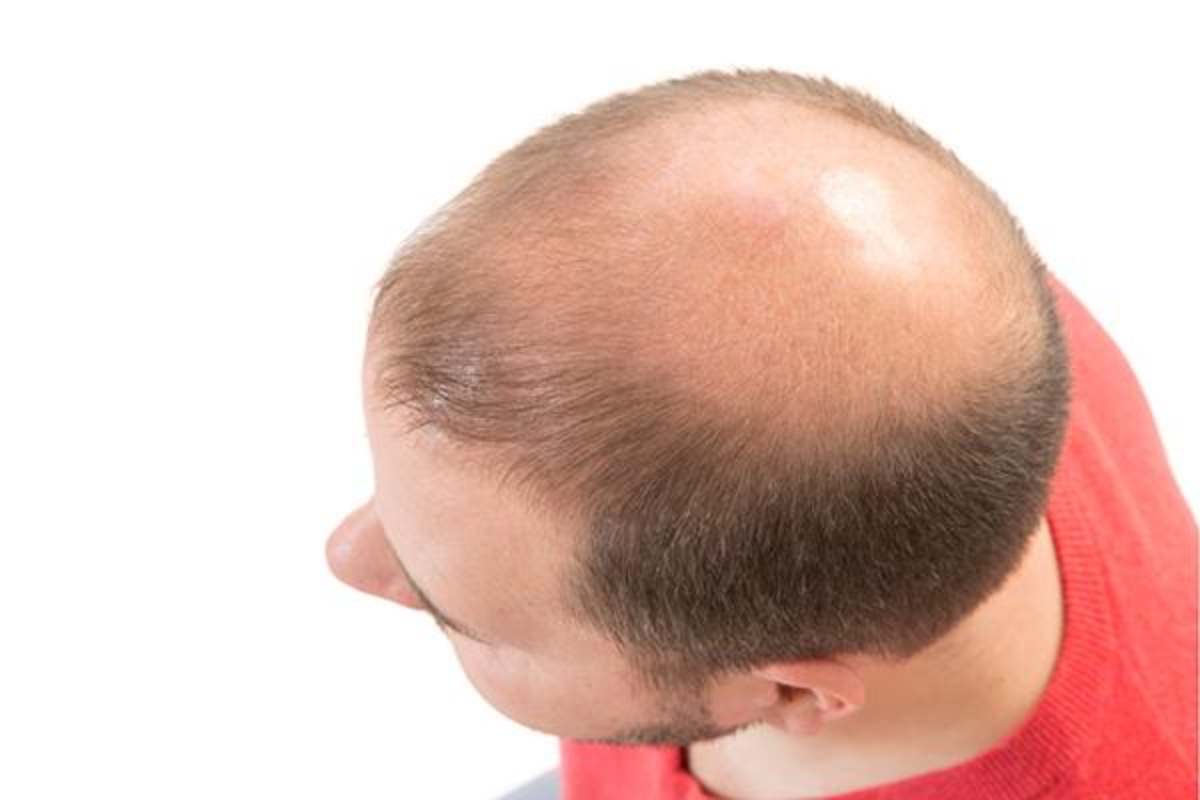It’s disconcerting to suddenly notice extra hairs in your hands, your hairbrush, inside your hat or even on your pillow. It’s even worse to see visibly thinner hair or even bald spots on top of your head, but there could be a number of reasons why you’re noticing hair loss, so it’s important to remain calm before jumping to any conclusions.
When it comes to hair loss, people naturally lose around 50-100 hairs per day, if you begin to see more than that falling out during a single day, it could be cause for concern. For some, particularly men, hair loss is caused by genetics and is permanent without medical intervention (hair transplant or medical treatments). Many other people, however, experience only temporary hair loss, which can be triggered by a variety of external factors.
Before you freak out and immediately call your doctor at the first sign of hair loss, here are some things that could explain your hair loss, and it may be temporary.
Signs Your Hair Loss May Be Temporary
1. You’re Under Physical or Emotional Stress
Extreme physical or emotional stress can affect hair growth and cause the hair follicles to shed more rapidly than normal, leading to temporary hair loss through a process called telogen effluvium. Telogen is the resting phase of hair. During extreme stress, more of your hairs switch from growing to the resting phase. This is your body’s way of focusing its energy on more important functions that are crucial for dealing with your stress, rather than focusing on non-vital functions like hair growth. Because your body switched more hairs over to the resting phase, you may notice an increase in hair loss.
When people are under stress, it causes a spike in the body’s production of the hormone cortisol. High levels of cortisol play a role in turning on a dormant phase in the hair growth cycle. This can cause your hair to become thinner or fall out but usually doesn’t occur right away. In fact the hair loss typically occurs 3-4 months after the stressful event, long after the stressful event is forgotten.
Typical physical stressors leading to temporary hair loss include undergoing anesthesia, surgery or having a high fever. Thankfully, the usual day-to-day stress of a busy lifestyle generally is not severe enough to cause hair loss, however day-to-day stress can cause other health issues and you should figure out a way to help your body relax in moments of stress. Avoiding stress in impossible, coping with stress in healthy ways in something we all should strive for.
If you’re experiencing more shedding than normal following an extreme stressor, like the loss of a loved one or another extremely emotionally taxing situation, your hair loss is likely temporary. Once the stress is alleviated, you should notice hair regrowth starting within 3-6 months, and you should regain all of the hair you had before the stress.
2. You Just Had a Baby
Pregnant women have a reputation for thick, luxurious hair and healthy nails, thanks to increased levels of certain hormones during pregnancy. But once the baby is born, the opposite can be true.
A woman undergoes significant physical and hormonal changes both during and after pregnancy. About 3 months after labor and delivery, it’s common for new mothers to experience a higher-than-normal volume of hair loss. This is also a form of telogen effluvium. This shedding should slow down and return to normal over the next year. If not, it could indicate a more serious condition.
Hair loss like this is very common post-partum, and you need to remember that it’s only temporary. Your hair is not falling out permanently after you’ve had your baby, and while it may be frustrating for those few months to a year, after you’ve given birth, just remember that it will grow back. There’s no reason to add more stress to your already stressful new-parents life, by worrying about your temporary hair loss. As we mentioned above, added stress can just exacerbate the issue, so it’s best to remain calm and understand that it’s not permanent.
3. You Were Recently Diagnosed with Hypothyroidism
The thyroid gland, located on the front base of the neck, produces a hormone that controls many functions of the body – most notably metabolism. When people have an underactive thyroid gland, they don’t produce enough of the thyroid hormone. This slows down metabolism and many bodily functions, including hair growth. When the thyroid is overactive, too much hormone is produced which can also lead to increased shedding.
Hypothyroidism affects men and women, and it is one of the most common causes of temporary hair loss in men. If you’ve noticed a sudden increase in hair loss that you can’t attribute to any other reason (aging, genetics, or another item on this list), it may be worth it to talk to your doctor about Hypothyroidism. A simple blood test should be able to help the doctor figure out whether or not you’re hair loss is due to this issue and he/she can then put you on a plan to help treat it.
When hypothyroidism is successfully treated, the hair loss should reverse. However, sometimes the hair loss can be permanent.
Hyperthyroid is not as common, but is treatable, and once stabilized should help slow down the hair loss.
4. You Changed Medications or Started Chemotherapy
It’s fairly common knowledge these days that if you begin chemotherapy to help fight cancer, there is a pretty good chance that you are going to lose your hair at some point during the process.
Chemo and other aggressive cancer drugs and treatments are intended to eradicate cancer cells and stop the disease from spreading, but often times, the chemo drugs will stunt hair growth and cause the person undergoing treatment to lose their hair through the process of anagen effluvium.
Anagen effluvium interferes with all the hairs that were in the active growing phase (anagen phase), which is 90% of the hairs on your head.
However, the good news is that following a successful treatment regimen, your hair should grow back once the drugs have cleared the body.
Chemotherapy and other cancer treatments aren’t the only medications that can cause hair loss. If you recently started a new medication, it could also be contributing to thinning hair. This is more likely if you are taking a combination of medications, however it can be caused by certain medications on their own.
The following is a list of just some of the medications that could affect hair loss, so it’s important to speak to your doctor if you are on any of these and feel that you’re losing more than the normal amount of hair:
Blood Thinners
- Coumadin
- Warfarin
Antidepressants
- Sertraline
- Zoloft
- Paxil
- Prozac
- Tofranil
- Imipramine
- Clomipramine
Cholesterol Medications
- “Statins” Lopid, Zocor, Lipitor
- Clofibrate
Hormone Medications
- Birth Control Pills
- Estrogem or Progesterone hormone replacement therapy
- Androgenic Hormones
- Steroids (including prednisone and anabolic steroids)
- Testosterone
5. You’re Hard on Your Hair
While many causes of temporary hair loss stem from internal factors, like thyroid or cortisol hormone imbalances, or medications, like chemotherapy, you could be experiencing temporary hair loss because you’re doing too much to your hair. If you frequently use chemicals to straighten, curl, or color your hair, it could be taking a toll.
Overuse of styling products that contain chemicals, combined with heat styling tools like curling irons and flat irons, can also damage the hair and cause it to break off rather than fall out.
If you suspect you might be a little too hard on your hair, and that might be the cause of your hair loss, we first suggest that you pay a visit to your doctor to rule out potential medical causes.
If there are no medical underlying causes that can explain the hair loss, then discuss with your doctor, along with a professional stylist, about a safe hair care regimen that will help to restore luster and strength to your hair.
Color, highlights, blow drying, flat ironing, extensions, teasing, tight pony tails; the damage adds up and the results can be devastating. The less you damage your hair with these activities, the better condition your hair will be in.
And we’re not saying that you have to give up those things completely, but if you think you’re overdoing it, and want to ensure that you don’t possibly end up with hair loss issues in the future, then now might be a good time to cut back on the products and hair styles that could damage your hair. Dr. Krejci suggests going on a “Hair Diet” when every possible – Avoid blowdrying, curling, straightening, teasing, or other harsh treatments a few days a week: Wash with a good shampoo, apply a moisturizing conditioner and possibly even leave-in serum and let your hair dry naturally after a shower.
If you’ve gone down this list and don’t feel like your situation fits into any of these topics, then what you’re experiencing could be more than temporary hair loss. Before you freak out, remember, that with technology these days, there are medications and surgeries that can drastically improve your thinning hair, but the best thing to do would be to talk to your primary doctor and then a dermatologist.
The internet is a great resource for trying to learn more about hair loss, but actually sitting down with a hair transplant specialist to discuss what’s going on, and what the possible treatment options are, is the best way to figure out a long-term solution.
Hair loss does not have to be permanent anymore, over-the-counter topical treatments have been shown to stop hair loss and stimulate regrowth, while men who experience genetic hair loss can also take an oral prescription medication to stop and reverse male pattern hair loss. There are more options for both men and women these days. We offer many types of hair growth treatments at The Limmer Hair Transplant Center in San Antonio.
If you have lost a lot of your hair and are a viable candidate, we can perform hair transplant to put you on a path to a fuller and thicker head of hair. Contact us to find out how you can stop your hair from continuing to fall today!
And if you’re visiting our site from out of town, we offer virtual photo consultations as well!







